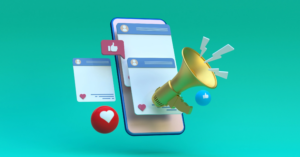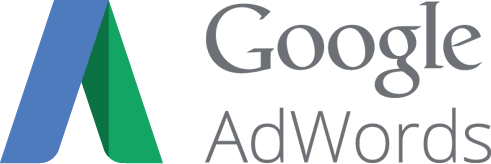Ep. 65 Building Brands with Jon Grogan
Brad Post, Create the Movement, host
Jon Grogan, Jon Grogan Studios, guest– Website
Brad Post, Create the Movement, host: Welcome back to Create the Movement Podcast. This is your host, Brad Post. I’m excited today to be talking to a friend of mine, Jon Grogan. Jon, how are you doing today?
Jon Grogan, Jon Grogan Studios, guest: Good. Thanks for having me on.
BP: Absolutely. I think you and I got connected, it was probably a little bit over a year ago. I was really fascinated by you, how you got started in the business. It’s jongrogan.co, right, Jon? If you could share your story, how you got your business started, what are some of the things you’re working on? I just want to hear your story, first of all. Let’s go there.
Jon’s Background
JG: Yeah, definitely. I grew up kind of always being fascinated with the technical side of where there was music or technology – like the real kind of the back end side. The real technical stuff. So, I grew up with up, I always had this computer that I learned to code on. It had like a one gig hard drive. It was like an old HP.
That was what I used to start learning coding at a young age and was just really fascinated with the idea that you could literally make almost anything happen that you wanted to happen – whether it was a website or piece of software.
Throughout middle school, high school really spent a lot of time learning coding languages. Was not real good with the testing side of what classes provide you. The whole educational framework was not very healthy for me. So, I actually did not do super well in those classes and had teachers like, “Man, I just don’t think you’re called to web design.”
So, it’s super funny because now I feel like most of my days are spent looking and working on those types of things. But I got to college and I think that’s where a lot of things transformed for me. I went into school to get a theology degree, actually. And in the process just ran into a bunch of guys that were really good at Photoshop Illustrator and web development. And there was just something about the creative side of things that really fascinated me. It wasn’t just the idea that could use those tools to accomplish a goal or to make something look good, but to really make something that was unique to you and kind of [] stripes of your personality. Those kinds of things fascinated me.
I, at that point, just found, I’m pretty sure an illegal copy of Photoshop, and I went on and started using that and learning that and pretty quickly started taking design clients. My first client was a website for a music-based nonprofit in Pittsburgh, Pennsylvania called El Sistema.
BP: This is when you were in college, Jon?
JG: Yeah. I was still a freshman/sophomore at that point. That was like the natural inclination that I had. I can’t really say that I got that from anyone, or I even thought, “Sweet. I’m going to start a business.” But the natural, next step, I think, was to say, “Okay, I’ve got these tools and I’m pretty sure that I could help somebody make something that they currently have look better.”
So that actually was my first kind of full-service project where I did some branding for them, some collateral pieces. I helped them develop a website. Which, looking back on, I think it’s so funny because you grow so much over the years.
I ended up spending the rest of my time in college. I finished out with a theology degree, after all. But by the time I had graduated I had basically built up this strong list of 30-40 freelance clients and was just really fascinated by the idea that you could really, easily turn that list of freelance clients into something that feels a bit more like an agency but still has the remote feeling. Like the online-operations feeling of a freelancer.
So, you get the quality that you’re looking for, but it still has this feeling – it’s just something new. A wholly online digital agency. It’s a very new concept to a lot of people. When I graduated that’s what I did – I incorporated. Moved from being a sole-proprietor, freelancer to starting to hire out, subcontracted whether it was teams or individuals that were really talented in what they do. And started operating more as a creative director.
I actually spent three and a half years while I was building this business working at a nonprofit in Tulsa where I was the design and creative director. There was a small time where there was somebody else in there. I actually think those years while I was, it’s kind of unhealthy.
I would never recommend anyone work a full-time job and be working as many hours as I was on the side. My schedule usually looked like about five working until about eight on my business. Working til eight to five with any lunch meetings being focused on my business. And then after work, I would take a quick break for dinner and go to a coffee shop for the rest of the evening to work until about 10 PM. I did that for about four years. I would not recommend that.
Coming out of that four-year season I’ve been doing this full-time for over a year. I actually really appreciate that because I think a lot of people have startup troubles where they get really. I mean there’s just not a lot of cash flow initially for a lot of people. You can move from freelance to business-focused where you’ve got a team and you’re bringing more value to the client. We didn’t really have that quite as much because through the four years of building this we spend a lot of time building up reserves. We spend a lot of in the developing process with sales funnels to make sure once we hit the ground full-time it would be sturdy enough to stand up.
Projects That Move and Excite
BP: That’s awesome. Can you share a little bit, Jon, you don’t have to pick a specific project, but what type of projects really move you? You really get excited about working on?
JG: Yeah. I think the things that most fascinate me are, some of the stuff that we work on as our main goal which is a full-service, full-scale, if you will, branding. Where we’re bringing a company in, taking an existing or a new idea, whether that’s a company or a product or whatever that is, and kind of pulling out of the client the things that they don’t know that they know. Pulling out the things that even in some ways that they don’t know they need. And helping them communicate something that they’re obviously so passionate about. Otherwise, why would you be spending time and money on it?
I think really that helping people aspect where I’m in a way getting the opportunity, the honor, of helping somebody else achieve their dream is probably one of the fulfilling and fascinating parts of what I get to do.
Jon’s Inspiration
BP: That’s exciting. Just to kind of throw this in there, this probably goes to a little bit about the last question. But, what really inspires you, Jon, in your work when you get into specific projects? Where do you look for inspiration?
JG: Yeah, that’s great. There’s a couple of different avenues that I really look for. I spent a lot of time learning this about myself because I don’t feel like it was obvious to me for a really long time. Music, in a lot of ways, I have to stay deeply involved in writing and listening to music to be inspired for what I do visually. Which sounds counterintuitive, but I think having a side art project. I always joke with some of my friends and even acquaintances that are here in business where I office, this co-working office in downtown Tulsa. Just my side hustle, my side art projects, those type of things that used to be a stress-reliever for me are now my main hustle.
And so I didn’t have anything to really recharge with. But music in a lot of ways is that for me. I think the other side of it, for me, as far as making sure I understand the question, what inspires me to keep going?
BP: Yes.
JG: I think another big thing for me is just seeing. It’s very hard for me to get in a room with somebody who is so passionate about their business that they’re fighting for it. They’re trying to get good prices. They’re trying to get this dream that they have our to the public and to convince the public that there is value in it. So much so that they would even spend money or donate to what this person believes in, or what this company believes in.
And that really inspires me. For me, I like to stay inspired in a way by connecting with the client deeper than just a transaction and making sure that I stay with this personal-type of connection. Because what that does is it allows me to pick up on their passion on what they do and helps me to produce something. Because almost in a way you take ownership of it more than they do, in some places, because you’re able to pick up how important it is for this client that this works out well. Because whether it’s a need or a desire to just see it grow. Not everybody picks up on that stuff.
The last thing and this is kind of a lot different than my other two inspirations. I had grown just through the process of learning about agencies – really studying that while I was a freelancer. Trying to make next steps in life. Really frustrated with the whole idea of how much margin and how much wasted overhead really goes into what agencies do. And so, it makes sense that you’re paying $50-100,000 for a website when there’s $45,000 of overhead for an agency every month. You know?
I think one of the big sources of inspiration for me is that we can do a better job at that. And I think a lot of companies are starting to do that. We can make a quality product at a reasonable rate. Especially with how much margin is currently being charged on some of these projects. And offering the client something that will get them results and still be within their grasp, rather than making it just absolutely unattainable.
BP: That’s good. A little bit over a year into this, right, going from freelance to full-time? Would you do anything differently if you knew where you’d be a year ago, today? Would you have done anything differently?
JG: Good question. I think, honestly,
BP: An answer could be ‘no,’ Jon. You may say, “No, this is perfect. I’m loving it.”
JG: No. There’s always a lot of things that we could do differently. But I think I would have trusted the process a bit more. Because I think it’s really easy for people that are wanting to start businesses to get really anxious about all the things that maybe they don’t understand, or maybe things that they’re learning. Because as a business owner you really have to take on the weight of everybody to make things happen.
Just trusting the process of starting a business in some ways. If you’re consistent to do the right thing and provide people with quality and you pay attention to all of the important things, the facets of your business, in a lot of ways you will figure it out.
And there’s no rush. You’re just having to stay consistent. That’s probably the big thing that I would have changed – just stay focused on knowing that it is a process and that you’re not speeding it up by being anxious about it.
BP: Right. That’s good. Another question, you know a lot of our audience are small-business owners. But there may be some people that are listening that are doing freelance work and working a full-time job or going to school full-time or whatnot, and wanting to make that transition like you did. What kind of advice would you give to them making that step to quitting a job, going from freelance to full-time ‘this is your business.’ Or, getting ready to graduate school and go, “Well, do I need to find a job? Or, can I start my own business and do this?”
JG: Yeah, I think the first thing, one of my favorite parts of what I get to do is helping people who are starting a business. It’s kind of almost a side-hustle for me. Kind of life coaching, or coaching the young guys and girls that are trying to start something they’re really passionate about, something that’s really caught their attention. I think the big thing is to realize that you really do have a lot more time, even with a full-time job, than you give yourself credit for. And you really do have a lot more capacity in your brain, in your abilities, than you give yourself credit for.
I’m all for making honest assessments of like, “Maybe you’re not the best fit for something.” And that kind of stuff you find out over time. But just realizing that you can put in the work right now. That there’s nothing stopping you. Even cutting out some of those things that maybe not necessary in your life. I don’t really watch TV anymore. I’ll go to movies every once in awhile. But that was like one of those little things that was so silly. It sounds so simple, but I was cutting out an extra three hours of my day. And during that foundational time where I was building a business, building up cash flow, building up reserves, those types of things, and really structuring things.
Having an extra three to four hours a day over a year – that’s crazy. That’s a big thing – just being willing to realize that you have the time and cut the things that are taking away that time. There’s really nothing special, I think, about business. They just are typically the people that have been willing to take a step forward and say, “I think I can do this. I think I can put enough work to make this happen.”
Jon Grogan Studios
BP: That’s good. That’s good stuff. Tell us a little bit about Jon Grogan services. What type of stuff you do. I know web design is a big component of what you do. What are a few other things that you do?
JG: When I started doing this as a freelancer I spent a lot of time in web design. That was just something I was really passionate about. I’ve been a front-end developer since I got started. That’s just the nature of what I’ve worked on.
But transitioning to more of a full company focus, where we’re trying to provide a company, almost in some ways I started the visual aspect of a one-stop shop. Everything from branding and down to videos and graphics. Our services look like bringing a client in, helping them understand the things they need to have a healthy represented brand online. And then providing them with guidance and the services that go along with that, as far as how to accomplish and get to a better place.
I’ll give you an example. Some of the things that we specifically address are corporate identity, collateral, even going down to the nuances of getting testimonials and reviews for your company, SEO, those types of things. Really, the goal is to kind of address a company’s need as far as a digital studio. That’s what our goal is to be for them.
But we do spend a lot of time on branding and websites.
BP: Okay. That’s good. I feel like a lot of companies nowadays, and I think you nailed it. What’s surprising is some companies have been out there for a while, “I guess I need to kind of get on this online thing because I need to build a website, or have a website built.” And then there’s the startup companies that are like, “I know we need to be online.”
But just kind of being able to coach them a little bit, right? Do they need a company LinkedIn account or Instagram, or do you have a logo, yet? “What’s your logo, your brand?”
JG: I think the biggest thing that a lot of those companies miss is just the strategy portion. It’s just so hectic as a business owner. You’re trying to keep up with a million different things. You need a logo. And some places, like you said, they know they need certain things. But there’s no structure to it because you’re running around all the time with your hair on fire trying to figure out what’s next.
In a lot of ways we just try to be that creative team that they can rely on even though they can’t afford a full-time staff if that makes sense. Where we’re providing the strategy. We’re providing all of those things to make sure they understand the big perspective and don’t have to worry about the details.
BP: Right. That’s good stuff. Jon, is there anything else you want to add to the podcast?
JG: No, I don’t think so. Thanks so much for having me on.
BP: Yeah. I would definitely encourage you to go to his site jongrogan.co. It looks like you’ve been posting some pretty great blogs, lately, too. I wanted to encourage you on that Jon. Keep up the writing. I’m loving it.
JG: Thank you.
BP: Thanks for being on, Jon. I’m sure we’ll connect again real soon.
JG: Thanks so much.











